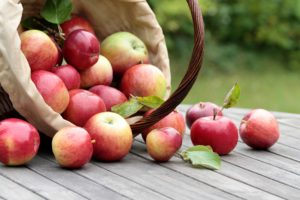
Diverticulitis is an often-painful condition caused by inflamed or infected diverticula—pouches that form on intestinal walls (and sometimes in the colon). Roughly 60-percent of the 70+ population has these pouches lining the walls in their digestive system, and about 20-percent go on to develop diverticulitis.
On their own, diverticula don’t create any problems—most people have no idea they have them. But if they become infected and inflamed, it can cause significant pain. And research suggests that inadequate fiber intake is a significant risk factor for diverticulitis.
As food makes its way through your intestines and colon, the residue can get trapped in and around the pouches, where they can become a breeding ground for bacteria. Fiber can fight against this in two ways. The first is that fiber prevents constipation. When stool sits in the digestive tract it puts pressure on the intestinal and colonic walls that can lead to diverticular pouches forming. Second, fiber helps food move through you so there is less chance for food to settle between any diverticula that may have formed.
Research has shown that most sources of fiber will reduce the risk of diverticulitis, but the best for protection seems to come from apples, pears, and prunes. So, eating an apple a day might help keep diverticulitis away, but it is surely not your only line of defense.
Daily fiber recommendations for adults 50 and younger is 38 grams for men and 25 for women; for those 51+, it’s 30g for men and 21 for women. Insoluble fiber seems to have a better effect on diverticulitis than soluble fiber, but getting both types is better for overall health, impacting digestion, cholesterol, heart health, and gut health. Fiber has a substantial reach when it comes to illness and overall health.
To defend yourself from diverticulitis and more, eat less refined and processed foods and more fiber-rich items like:
- Apples
- Pears
- Prunes
- Oats
- Cereal/whole grains
- Vegetables
- Lentils
- Beans
- Broccoli
- Avocado
- Sweet potato